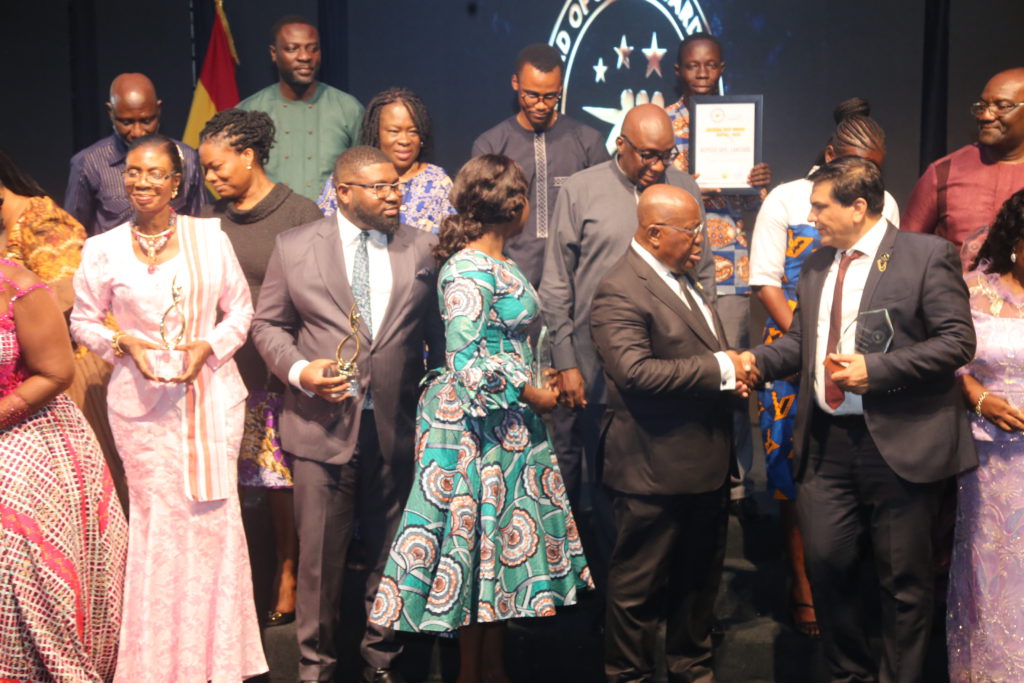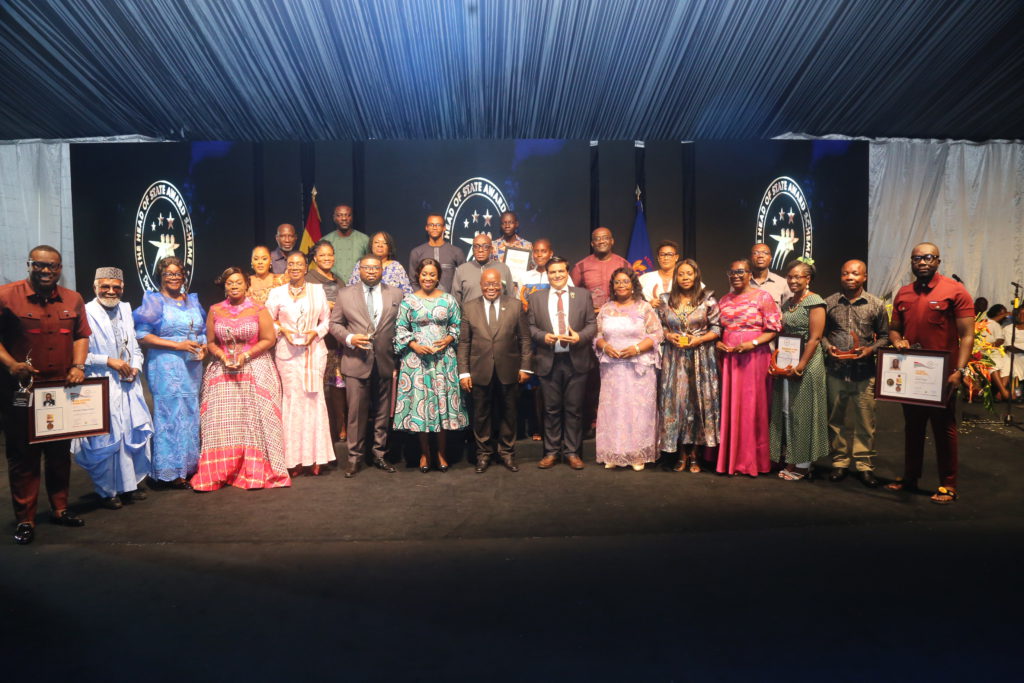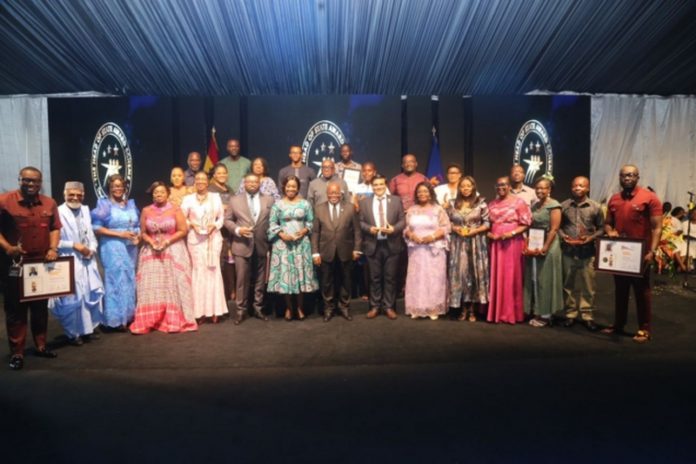At the Jubilee House in Accra, President Akufo-Addo honored more than 280 finalists of the intensive youth innovation program, the Head of State Award (HoSA).
These outstanding young individuals from across Ghana received medals for their remarkable performances in the project.
Organizers characterize the award scheme as a “structured, non-formal education, youth development program, empowering all individuals aged 14-24 to explore their full potential and discover their true purpose, passion, and place in the world, irrespective of their location or circumstances.”

Participants, primarily from senior high schools like Tema International School, Wesley Girls SHS, and Nkawie SHS, completed various tasks and were evaluated.
The award scheme encourages young people to engage in a variety of activities, fostering versatility and a positive life outlook.

Acknowledging contributors to youth development, President Akufo-Addo honoured individuals such as Mr. Kwasi Twum, CEO of the Multimedia Group, and Uncle Ebo Whyte, playwright and CEO of Roverman Productions.

In his address, the President pledged support for completing the HoSA Secretariat in Accra and commended the exemplary work of the award winners.

What organisers say about HoSA
The Head of State Award Programme is a positive challenge for both corporate and young people. It is not easy, but it is rewarding.
It gives a structure for young people aged 14 – 24 to realise their ambitions and to change their world.

It is the Duke of Edinburgh’s International Award in Ghana and a member of the International Award Foundation, the world’s leading youth achievement award that brings together practical experiences to create committed global citizens through the provision of a balanced programme that challenges and equips young people with positive life skills.

It provides a leisure time activities and a rewarding agenda that fills the gap left by formal tuition and equips young people with life skills, builds their confidence and engages them with their communities to make a difference to themselves and the world at large.

As a non – formal educational programme, the Award plays a vital role in providing opportunities for young people to develop essential life skills, complementing their formal education.
Its success is evidenced by the fact that it has spread to over 140 countries and territories.

